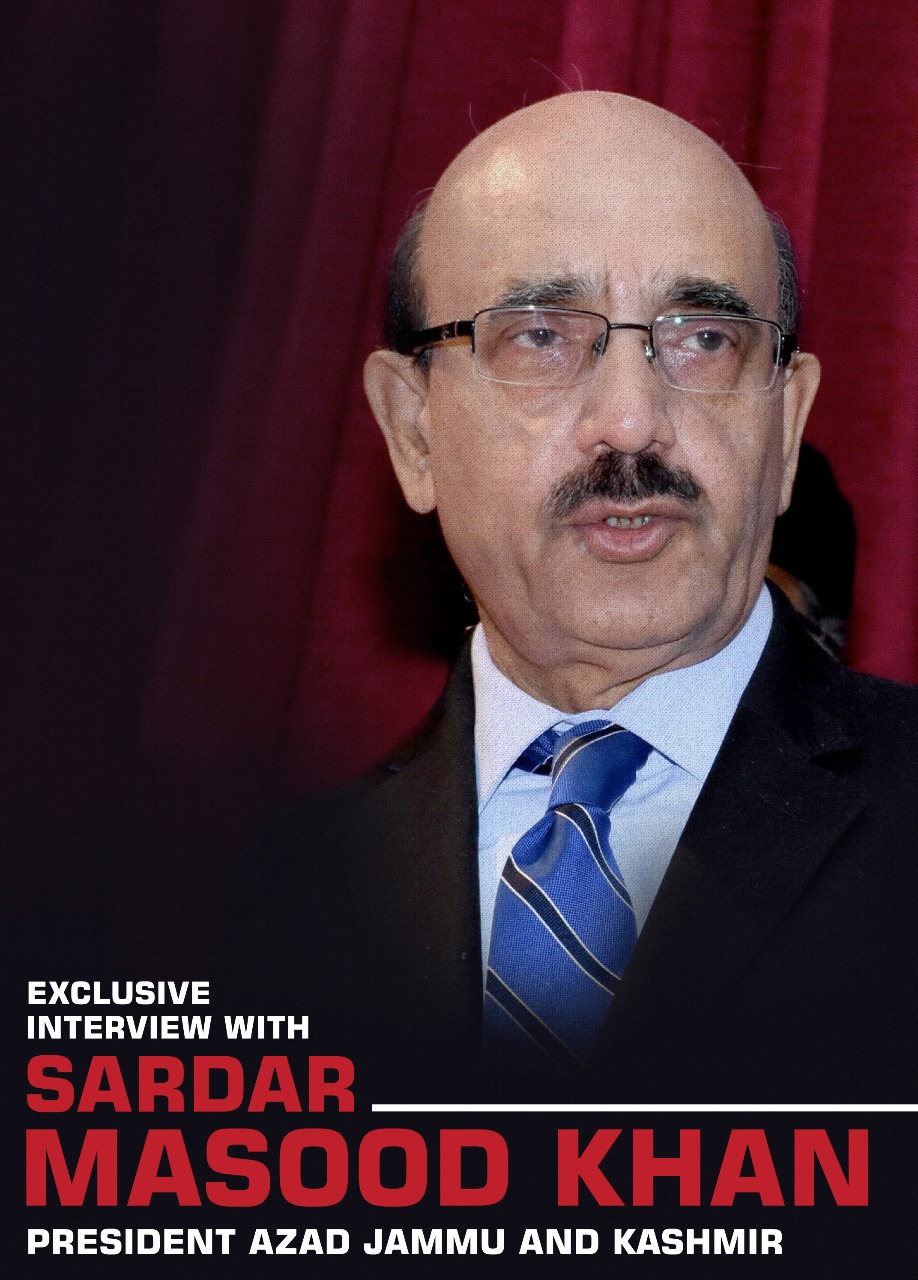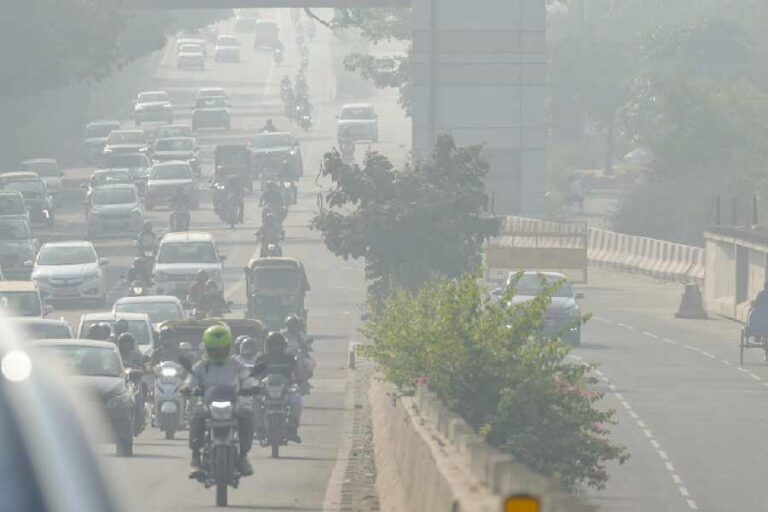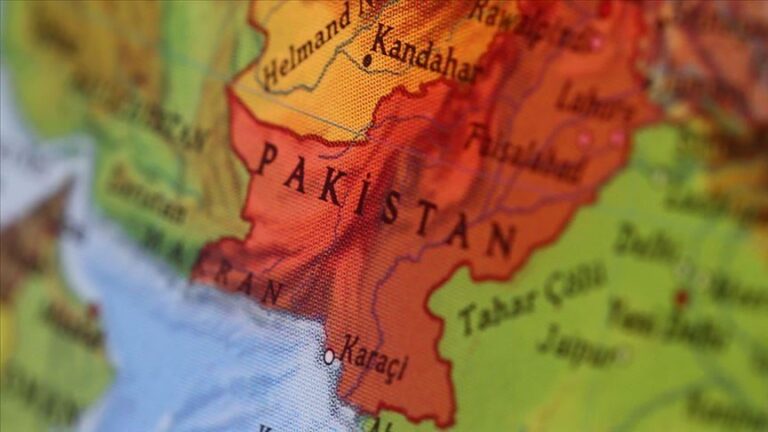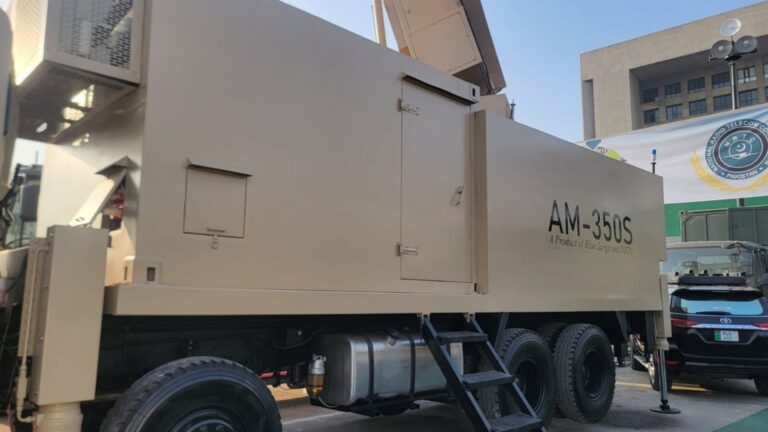
Sardar Masood Khan is the 14th President of Azad Jammu and Kashmir. A career diplomat, Masood Khan was Pakistan’s Permanent Representative in the United Nations missions in New York and Geneva. He was also Pakistan’s Chief Negotiator in the Nuclear Security Summit (NSS) from 2009 to 2014. While being Pakistan’s Ambassador in China, Masood Khan played a monumental role in fostering Sino-Pak bilateral relations for which he was conferred the highest award by President Xi Jinping in 2015. Pakistan Politico met President Sardar Masood Khan to discuss the Kashmir issue, the evolving dynamics of international diplomacy and the shifting sands of Indo-Pak relations.
Q: There could hardly have been a more challenging time for anyone to represent the Kashmiris. As President AJK, what is your strategy to counter the Indian propaganda of denial about the indigenous nature of the Kashmiri freedom movement?
Masood Khan: The times are challenging, no doubt. India has intensified its repression in the Indian Occupied Kashmir and its strong strategic alliances with the US and other western countries have shrunk space for a focus on the serious human rights situation in IOK or meaningful international diplomacy on Kashmir. India contends that Kashmir is a bilateral matter but then it has practically choked all channels of communication on Kashmir and IOK even on the bilateral plane, let alone allowing any substantive dialogue to find a lasting solution.
My strategy, as the President of Azad Kashmir, has been based on six points: encourage the people of Pakistan and Jammu and Kashmir to forge unity in their ranks; take the story and the case of Jammu and Kashmir back to the international community, especially the UN, where they belong; leverage the strengths of the diaspora community which has gained more clout in the Western countries and the Gulf region; use traditional and new media effectively; make Pakistan and Azad Kashmir strong economically; and reach out to the Indian civil society.
Q:The Office of the United Nations Commissioner for Human Rights has recently published a report on human rights violations in IOK. How would this report influence the discourse on the Kashmir issue?
Masood Khan: This is the first ever report by the United Nations on gross and consistent violations of human rights in IOK. It lists a broad array of human rights violations including killings, blindings by pellet guns, sexual violence, mass unmarked graves, enforced disappearances, arbitrary arrests, including children, torture, excessive use of force, lack of access to justice and a culture of impunity. The report points out how this reign of terror is sponsored, supervised and executed by the state and its forces deployed in the territory.
Following the martyrdom of Burhan Wani in July 2016, and ensuing killings of peaceful protestors by the Indian forces, the High Commissioner for Human Rights, had requested India and Pakistan to give unconditional access to Kashmir to assess the human rights situation. India rejected this request while Pakistan offered access to the High Commissioner. The High Commissioner was thus forced to undertake ‘remote monitoring’ to collect and collate information on IOK.
The High Commissioner has noted that militancy in IOK has gone down drastically; and the protests (against Indian rule and brutalities) now have participation from larger number of people comprising of more young, middle class Kashmiris, including females. The character of the Kashmiri movement is essentially peaceful.
We welcome the High Commissioner’s recommendation to the Human Rights Council to establish a commission of inquiry to conduct a comprehensive independent international investigation into human rights violations. We also welcome his recommendation to repeal The Armed Forces Special Powers Act 1990 that empowers the Indian forces to commit crimes against Kashmiris. The report recommends that India’s other draconian law – Public Safety Act 1978 – be amended. We believe this law too should be rescinded.
The significance of the report is that the analysis and recommendations come from an independent source, not from the Kashmiris or Pakistan. In the past, it was either Pakistan or the people of Kashmir talking about human rights violations in IOK or the international media and human rights organizations. India would reject such “allegations”; it used to be our word against theirs. Now it is the Office of the High Commissioner. It is different. It is a broad, damning indictment. We should not let it be swept under the carpet.
The report also asks for access to Azad Kashmir. I would say, subject to the condition expressed by Pakistan, Azad Kashmir is ready for engagement on the entire range of human rights in its territory. According to a district wide survey, Azad Kashmir has the highest educational score in the whole of Pakistan and the lowest crime rate. It attaches importance to the promotion and protection of human rights. Focused on promoting the rule of law, access to justice, transparency, accountability, and fast economic development, we are ready to showcase what we are doing. We have nothing to hide.
Q: What will be the implications for Pakistan & AJK if India gets a permanent seat at the UN Security Council? What is our stance against the Indian membership in UNSC which India is aggressively lobbying for?
Masood Khan: Before I respond to the question of India becoming a permanent member of the UN Security Council, let me point out that the position of Pakistan and likeminded countries on the Council reform is based on a principle, which states that there should be no new permanent seats in the Security Council because permanent seats were created during, and in the aftermath of, the Second World War, reflecting geopolitical realities of the time. Mainly victors of the war and their allies were accommodated as permanent members. Vanquished nations such as Germany, Italy and Japan were kept out. The world has changed dramatically since 1945 and therefore there is no justification for creating new centres of privilege within the Council.
The drive for the Council’s reform essentially stems from the aspirations of the 193 nations for a more democratic and accountable Council.
Four countries – Brazil, Germany India and Japan – called G-4 aspire to become permanent members mainly because of their size, economies and role in international politics. These countries are powerful today; but no country is powerful in perpetuity. You just have to look at the history of the last century to substantiate that point.
The reality is that the world today is much diverse and pluralist. Many medium-sized states, individually and collectively, compete with G-4 in terms of size, population, economy, military capability, contribution to UN peacekeeping, and commitment to democracy and human rights. Mexico, Argentina, Canada, Colombia, Italy, Spain, Turkey, Pakistan, Malaysia, Indonesia and South Korea fall in that category.
Pakistan is part of a group of nations in the UN that calls itself Uniting for Consensus that includes most of the countries mentioned above. The group opposes any additional permanent members in the expanded Security Council. Instead, it proposes creation of a new category of members with longer duration and a possibility to get re-elected in that category. They believe that the United Nations should pursue the principle that all member states — small, medium-sized and large — are effectively represented in the reformed Council. Council reform should reflect the aspirations and interests of all; not the ambitions of a few.
If India ever becomes a permanent member of the UN Security Council it will squeeze diplomatic space for Pakistan in the UN as a whole. One foreseeable consequence is that India would move to expunge from the Council the agenda item on the India-Pakistan question which includes the Jammu and Kashmir dispute. Moreover, India would step up its efforts to isolate Pakistan diplomatically. The practical evidence of the conduct of the existing permanent members of the Security Council shows that they are there primarily to safeguard their own national interest. India would do the same. It is also true that India is lobbying for a permanent seat not just to hurt Pakistan but to acquire its big power status.
Q: Given that Indian atrocities in Kashmir are on the rise, it appears that we have been unsuccessful in producing an effective blend of propaganda and diplomacy in this age of electronic and social media. What in your opinion is the structural flaw in our mechanism that has limited us from selling our narrative to the world?
Masood Khan: I would say we are not completely unsuccessful. The issue of Kashmir is alive in the media, in international forums, and in international political circles. It is seen as a very sensitive issue between Pakistan and India involving the fate and political future of the people of Jammu and Kashmir. World decision makers know that the issue has serious implications for international peace and security. You can partly attribute this success to the firm stand of Pakistan on the issue and the continuous sacrifices of the Kashmiris in the face of Indian brutalities. Pakistan’s outreach efforts in this regard have been quite successful. Sometimes, this degree of tenacity and resilience shown by Pakistan and Kashmiris baffles Indian diplomats, politicians and establishment.
That said, we would have to acknowledge that India is more successful in propagating its false narrative about Kashmir. India is subjecting Kashmiris to state terrorism, and yet it makes the world believe that it is fighting terrorism in IOK. It has committed most gruesome crimes in the territory and yet it projects itself as a victim. The sheen on India’s story is, however, wearing thin after the brutal killing of Burhan Wani and the killing spree and blinding of innocent and unarmed Kashmiris that followed.

Your suggestion for developing a blend of propaganda (I would call it outreach) and diplomacy is sound. We must not work in silos. This kind of blend will entail closer coordination between the Foreign Office, other state institutions and the media. Our state institutions have some skills and experience in dealing with the traditional media – newspapers, TV networks, but the use of and liaison with social media largely remains amateurish. We need to learn to interact with the full spectrum on more professional lines.
I would say there is no structural flaw in our ‘mechanism’; what we need to do is to catch up, because India, whether we like it not, is far ahead of us in the field of communication. First, we have to identify deficits we have in our overall approach and vehicles for influencing world opinion. The growth of our media and think tanks is recent. While we have the quantity, we lag behind in producing and marketing quality content. Our young leaders and communicators should focus on proficiency in the English language, which is now the international lingua franca. Having skills in these areas is important and I am confident that our universities, think tanks and even media houses are preparing a new generation of communicators and, in the process, are equipping our politicians and lawmakers with new, usable skills. What is even more important is to craft messages, within our national security paradigm, that we want to communicate to the world; and Kashmir should figure in the top three priorities, because the very statehood of Pakistan is linked to resolution of the Kashmir dispute.
Second, our media and our communicators need to connect with the mainstream media of the world. There is too little scholarly content of high standard on Kashmir or for that matter on Pakistan’s foreign and national security policies that is being produced. The distorted Indian version on Kashmir and Pakistan go unchallenged. As a result, Pakistan is not adequately understood in the world. To redress this deficit, our young professionals from government service, politics and civil society need to connect with the world and take their story to multiple audiences so that the world understands our perspective. A movement in that direction has already started; but we need to inject more vigour in it. One way to do so is to create common platforms with the diaspora community in Europe, North America and the Gulf, which is increasingly becoming influential politically and economically.
Q:How is Kashmir being represented at the international level under your leadership and administration?
Masood Khan: I have tried to internationalize the Kashmir dispute as far as it is possible. In the international community, there is apathy towards Kashmir and in most instances there is complete silence. It is our responsibility to break this conspiracy of silence driven by realpolitik. I have gone to different capitals to shine light on Kashmir and start conversations on a dispute that has the most serious implications for regional and international peace and security. IOK is in captivity; and its people and human rights defenders cannot go abroad to tell their story; but the people of Azad Kashmir and Pakistan are free and they can tell the world about the plight and suffering of Kashmiris.
The Azad Kashmir Government is focusing very diligently on good governance and economic development, especially in the areas of road infrastructure, hydropower generation, quality education, wider access to health facilities, promotion of tourism, and development of industrial, agricultural and telecommunications sectors.
Q:Do you think CPEC will have any impact on Kashmir? Are US and Indian noises on the subject (of CPEC passing through the ‘disputed territory’) engineered to distract Pakistan and China from achieving their goals of economic prosperity and global connectivity?
Masood Khan: The China-Pakistan Economic Corridor (CPEC) has already had an impact on Kashmir in two ways. One, Indian noises have raised the profile of the Kashmir dispute internationally; and two, the CPEC’s main artery which passes through Gilgit-Baltistan and Azad Kashmir has been integrated with the CPEC through four projects (two hydropower projects, a 200-kilometer long highway and an industrial zone). It is ironic that because of India’s objection to the CPEC, the world is paying close attention to Kashmir. In the past, India would take utmost precautions to avoid any spotlight on Kashmir because it wanted the status quo. Yes, you are right, India’s criticism of the CPEC is disingenuous, because the real motive behind India’s protests is to undercut China’s growing strategic and economic ties with Pakistan and the prosperity and stability that CPEC would usher in. Moreover, implementation of the CPEC will enable Pakistan to explore its West Asian, South Western Asian markets and thereby overtime decrease its dependency on India.
India’s noises are false on another count. International law does not prohibit or circumscribe investment in the disputed areas. The European Union, for instance, has been making investments in the Palestinian territory and East Jerusalem for quite sometime without violating any international law.
Q:Is there any statistical evidence which supports the argument made by Pakistan that India is changing the demographics of the Indian occupied Kashmir?
Masood Khan: Demographic changes in IOK are not a secret. Open source data can substantiate them. The Indian politicians and officials openly talk about them. Let us first talk about the so-called West Pakistan refugees, mostly Hindus and Sikhs, who migrated from West Pakistan and Azad Kashmir and were deliberately pushed to the Jammu region of IOK. Their current reported number is 125,000, and are mostly living in Jammu, Kathua, Udhampur, and Poonch. Their actual number is much higher, ranging between 150,000 to 170,000. Steps have been taken to give them permanent residence, though they are not state subjects. In addition to giving them entry into the police and defense forces, in contravention of Articles 370 and 35-A of the Indian Constitution which give a semblance of autonomy to IOK, a Parliamentary Committee has recommended that these refugees be given benefits of state subjects and thus pave the way for their permanent residence certificates.
Article 35-A of the Indian Constitution, which gives certain privileges to the Kashmiris in regard to settlement, employment, property and scholarships, are a special target of attack by the Hindu extremist organization Rashtriya Swayamsevak Sangh (RSS).
Besides, India is implementing a plan to build a separate settlement in Kashmir for the Kashmiri Pandits who are currently living in different parts of India and Jammu. Land is being allotted for the “Sainak Colonies” for retired army officials who have served in IOK. This is a particularly vile and cold-hearted scheme because these very personnel would have terrorized and brutalized Kashmiris during their deployment in IOK. Other measures include steps to settle non-Kashmiri Hindu businessmen and industrialists in IOK, use Statistics Act 2008, Securitization and Reconstruction of Financial Assets Act 2002, and Goods and Services Tax (GST) to manipulate and alter demography, to give chunks of Kashmiri land and property to non-Kashmiris and shrink the rights of the Kashmiris. The objective is to open the doors for non-Kashmiri Hindus from Bihar, Rajasthan, Punjab, Gujarat, Bengal and Kerala. These moves are accompanied by proposals to give three seats to Pandits and add five additional seats for “refugees from POK” in the Jammu and Kashmir Assembly in order to reduce the majority of the Muslim constituents.
Kashmiri leaders have said that by making these changes, India is trying to create new realities on the ground in order to integrate the IOK with the Indian Union.
I would like to point out that the Fourth Geneva Convention and Additional Protocol I prohibit deporting or transferring of its civilian population by the State occupying a territory. The Statute of the International Criminal Court goes a step further and states that direct and indirect transfer of parts of its civilian population by the Occupying State into the territory it occupies is a war crime. India is committing these crimes in IOK.
Q: Kashmir is referred to as a ‘nuclear flashpoint’ in this world. But the world’s most dangerous place is already at war. How do you foresee a future India and Pakistan crisis quickly worsening the dynamics on the escalation ladder?
Masood Khan: Kashmir is a potential nuclear flashpoint. Non-resolution of the Kashmir dispute is a huge risk for nuclear escalation at some point. The lethality of conflict escalation, unpredictably, should not be underestimated nor soft-pedaled. Despite the risks involved, the mutual nuclear deterrence between India and Pakistan establishes equilibrium and reduces the chances of a full-fledged conventional war. But even a limited engagement along the Line of Control can flare up and that is why it is necessary to work on a Pakistan-proposed Strategic Restraint Regime comprising three components – nuclear restraint, conventional balance and conflict resolution. Prime Minister Narendra Modi’s government has closed all doors for talks or engagement with Pakistan. Even if there was a dialogue between India and Pakistan one would not have hoped for a breakthrough on Kashmir but it could have advanced the stalled process on nuclear confidence building measures.
Q: How do you strategize to engage the moderate/sane voices inside India who are sympathetic to the Kashmiri freedom movement? Do you think there is enough momentum inside India that can bring it to the negotiating table with Pakistan on Kashmir issue?
Masood Khan: Frankly, we do not have any effective strategy to reach out and connect with the Indian civil society. Following the confidence building measures that were put in place in the early 2000s, people to people exchanges have taken place. Most of the people who go to India pursue their careers or commercial interests. The Indian intellectuals who engage with people from our side want to foist their narratives, largely conforming to their official stance on us and to tell us how foolhardy or unrealistic it is to pursue our stance on Kashmir. The Indian side has also tried to use the CBMs to eclipse and render irrelevant issues that matter most to us such as Kashmir.
We need to have a genuine dialogue with the ‘sane and moderate voices’ as you put it. There are independent thinkers and opinion leaders in India who question India’s policy of repression in Kashmir and try to project Kashmiri aspirations for freedom and their demand for protection of their human rights. Some of them are considered pariahs; others are hounded and persecuted. To give an alternative view on Kashmir is a cardinal sin in the Indian polity for which the state would demand repentance and expiation to avoid severe punishments. When Pakistanis or Kashmiris applaud Arundhati Roy or Pankaj Mishra that makes things worse for them.
Despite these barriers, we should find ways to communicate with the Indian civil society. The purpose should not be to create an atmosphere of misplaced bonhomie, but to try to make Indians understand our perspective and remind them of their responsibility to help Kashmiris get their rights and to put an end to the unrelenting oppression in the territory.
Yes, there are leaders in India who are saying openly that India’s “muscular” policy in Kashmir has failed and that dialogue with the Kashmiri leadership and Pakistan is a must to move towards conflict resolution and peace. They also recognize that Kashmir is a dispute and there is a question mark on the so-called accession of the IOK to India. Congress leader P. Chidambaram, for instance, has repeatedly asked for a political solution of the Kashmir dispute.
But, let’s not forget, that resumption of dialogue between India and Pakistan alone will not give us a magic wand to resolve the Kashmir issue. Several rounds of bilateral talks held in the past have proved to be a farce and a mirage. In these talks, India would never, ever engage on the substitution discussion on the status of the state of Jammu and Kashmir or the political future of its people because, as it argues, it is already an ‘integral part’ of India. So our message to the Indian civil society should be to persuade its political parties to recognize the disputed nature of the IOK and start serious conversations with all the parties on ways to ascertain the wishes of the Kashmiri people.
Q: What is your message to the people of AJK, IOK, Pakistan, India, and the world?
Masood Khan: Peace is precious. We should spare no effort in its pursuit. We owe it to our present and future generations. To the people of AJK and Pakistan, I would say persevere in your political and diplomatic struggle, the dawn of freedom for Kashmiris will soon come. To the people of IOK, I pay tribute to them for their sacrifices in blood and salute them for their strong commitment to freedom and self-determination in the face of unabating coercion. To India, I would say you won freedom from the British rule; don’t turn into a colonial power yourself to suppress Kashmiris and deny them what you have: freedom to choose a political future.







